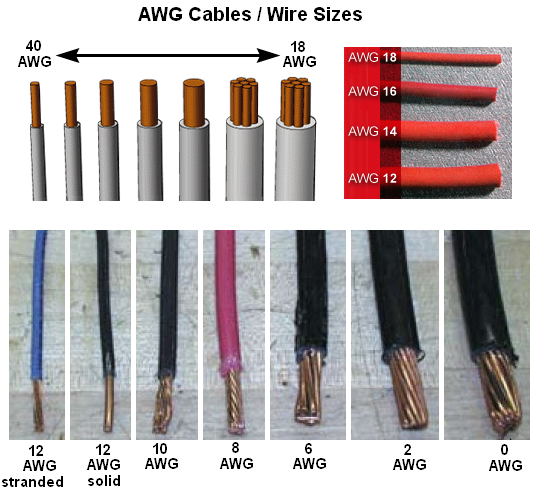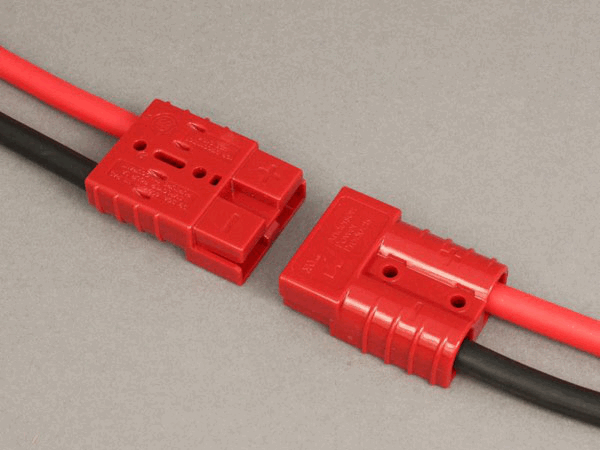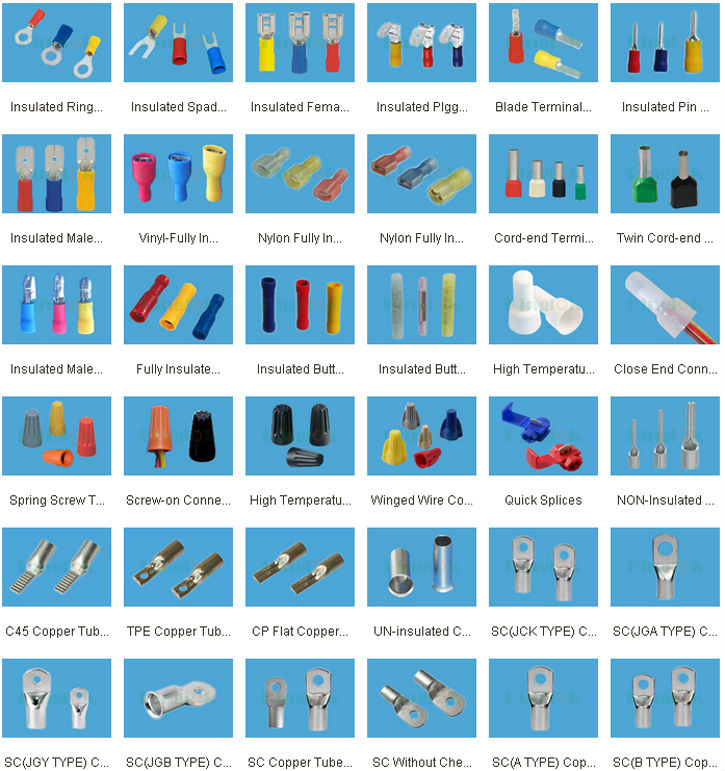Table of Contents
Electrical
Wire Gauge
American wire gauge (AWG)is a standardized wire gauge system used since 1857 predominantly in North America for the diameters of round, solid, nonferrous, electrically conducting wire. Dimensions of the wires are given in ASTM standard B 258. The cross-sectional area of each gauge is an important factor for determining its current-carrying capacity. Increasing gauge numbers denote decreasing wire diameters. That means the smaller the gauge number, the bigger the diameter.
Torque produced in an electric motor is proportional to the current (amps) it draws… more current (amps), more torque. That means you need thicker wire for more current. For the motor circuits it is common to use 12 AWG or 10 AWG wire depending on your electric current needs. Typical amp capacity listed below Ref
- 12 AWG = 34 amps
- 10 AWG = 52 amps
A good inexpensive source of wire is electric drier or range cords. Usually 6-8 AWG 3-4 wires per cord, 3+ feet long and easy to separate wires. They are often left on appliances when set out for trash
Connectors
Anderson Powerpoles
Anderson Powerpoles are great connectors to use for your battery/motor load carrying circuits. They work best with the proprietary crimp-tool which is a bit pricey but worth every penny. You will be crimping a lot of connections over the course of your build, and having the proper tool makes all the difference. If you can't afford the crimp tool, you may be able to borrow one from a local HAM radio club as Anderson Powerpole connectors are popular with that crowd. Good sources for powerpoles are eBay, Amazon, and Powerwerx.
Make sure to order the right size for your amperage needs!
Note: Anderson Powerpoles are highly recommended.
Check out the Anderson Powerpole Connector General Installation Tips
Battery Connectors
Anderson SB50 Connectors are good for batteries. They use 10 AWG wire. You can't connect them in reverse. They are pretty damn durable. (More on the Anderson SB50 Connectors.)
XT-60 series connectors
Pumping Station:One and LVL1 hackerspaces have both run the XT-60 series of connectors with success. these connectors are cheaper than the Anderson Powerpoles (~$8 for 10 pairs on Amazon), are solderable with wires up to 10 AWG and generally stay connected unless pulled apart by hand. the indicated xx section of the XT-xx part number is the amperage the connector is good for; XT-30, XT-60, and XT-90 connectors are available.
NB: If you do not have a large-tip iron, soldering these, especially with stranded wire (you are using stranded wire, right?) will be a bear. Pay attention to how your solder is flowing to ensure the bond you create between the wire and the connector will handle the current you will run through the connector. cover with heat-shrink before use.



